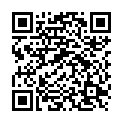|
|
|
| Module code: E203 |
|
4V+1U+1P (6 hours per week) |
|
7 |
| Semester: 2 |
| Mandatory course: yes |
Language of instruction:
German |
Assessment:
Written examination + 3 assessed lab reports
[updated 10.03.2010]
|
E203. Biomedical Engineering, Bachelor, ASPO 01.10.2011
, semester 2, mandatory course, course inactive since 28.11.2013
E203 Electrical Engineering, Bachelor, ASPO 01.10.2005
, semester 2, mandatory course
|
90 class hours (= 67.5 clock hours) over a 15-week period.
The total student study time is 210 hours (equivalent to 7 ECTS credits).
There are therefore 142.5 hours available for class preparation and follow-up work and exam preparation.
|
Recommended prerequisites (modules):
E104 Fundamentals of Electrical Engineering I
[updated 10.03.2010]
|
Recommended as prerequisite for:
E302 Measurement and Instrumentation Engineering II
E303 Electronics I
E304 Electrical Engineering Theory I
E403 Systems theory
E404 Electric Power Supply Systems I
E405 Electrical Machines I
E406 Power Electronics I
E408 Industrial Control Technology
E412 Fundamentals of Transmission Technology
E415 Mobile Communications Systems
E504 Signal and Image Processing
E506 Building Services Engineering I
E513 High-Voltage Engineering I
E515 Communications Engineering
E521 Integration-Compliant Circuit Engineering I
E601 Microprocessors II
E614 Telecommunications Electronics
[updated 13.03.2010]
|
Module coordinator:
Prof. Dr. Marc Klemm |
Lecturer:
Prof. Dr. Marc Klemm
[updated 10.03.2010]
|
Learning outcomes:
After successfully completing this course, students will have acquired an understanding of fundamental aspects of electrical engineering and will have the skills needed to solve problems in the areas ‘three-phase and single-phase AC systems’ and ‘the magnetic field’ that arise in all later more specialist courses. In particular, students will have learned the fundamental techniques for analysing electrical engineering problems.
[updated 10.03.2010]
|
Module content:
Magnetic field:
Fundamental quantities, basic laws, boundary layer effects, magnetic field calculations; properties of ferromagnetic and ferrimagnetic materials, descriptive and characteristic quantities; magnetic circuits: equivalent circuits, magnetic shearing; induction law, applications; self-induction, energy, forces acting on pole faces, moving charges; coupled systems: transformers; RL circuits, switching operations
Three-phase and single-phase AC circuits:
Periodic functions, characteristic parameters of a sinusoidally varying quantity, mathematical operations, phasor descriptions of ideal passive R, L and C elements, power, phasor calculus, complex numbers, circuit analysis using phasor diagrams: complex impedance, network theorems, symmetric three-phase system, loci, low- and high-pass filters
Laboratory work:
Topics: the magnetic field; three-phase AC systems; single-phase AC systems
[updated 10.03.2010]
|
Teaching methods/Media:
Presentations, blackboard, lecture notes
[updated 10.03.2010]
|
Recommended or required reading:
Ameling: Grundlagen der ET (Band 1 & 2)
A. von Weiss: Allgemeine ET
Möller, Fricke: Frohne,Vaske, Grundlagen der ET
Bosse: Grundlagen der ET (Band 1-4)
Lunze, Wagner: Einführung in die ET Lehr- und Arbeitsbuch
Clausert, Wieseman: Grundgeb. der ET (Band 1-2)
Weißgerber: ET für Ing. Band 1-3
[updated 10.03.2010]
|


